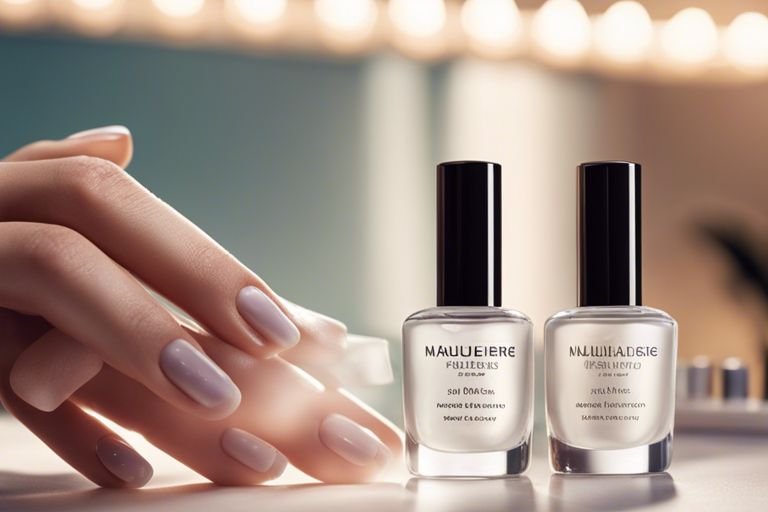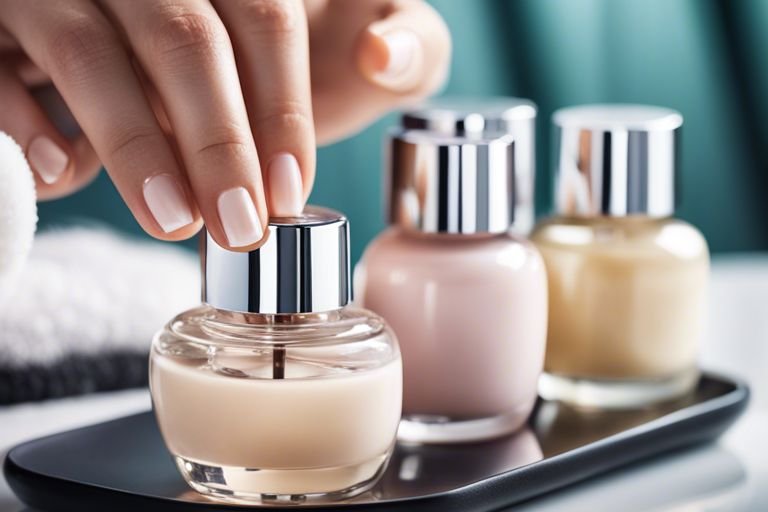Welcome to our expert guide on Nail Care for Allergy Sufferers. For individuals with hypersensitive nails, maintaining healthy and beautiful nails can be a challenge. Allergic reactions can be triggered by various nail products such as polishes, removers, and adhesives, leading to discomfort and even severe skin issues. In this blog post, we will provide you with essential tips on how to care for your nails if you have allergies. From selecting hypoallergenic nail products to avoiding common allergens, we have got you covered. Stay informed, stay safe, and enjoy lovely nails without the worry of allergic reactions.
Key Takeaways:
- Avoid Harsh Chemicals: Hypersensitive nail sufferers should steer clear of nail products containing harsh chemicals like formaldehyde, toluene, and dibutyl phthalate.
- Choose Hypoallergenic Products: Opt for hypoallergenic nail polishes, removers, and treatments that are specifically formulated for sensitive nails.
- Moisturise Regularly: Keep your nails well-hydrated by moisturising them with nail-friendly oils or creams to prevent dryness and brittleness.

Identifying Allergens and Triggers
When it comes to nail care for allergy sufferers, the first step is to identify the allergens and triggers that may be causing adverse reactions in hypersensitive nails. By pinpointing these culprits, individuals can better manage their nail care routine and avoid potential flare-ups.
Common Nail Product Allergens
Some of the common nail product allergens that allergy sufferers should be wary of include formaldehyde, toluene, dibutyl phthalate (DBP), and formaldehyde resin. These chemicals are often found in nail polishes, nail polish removers, and artificial nail products, and can trigger allergic reactions in hypersensitive individuals.
It is important for allergy sufferers to carefully read the ingredient labels of nail products and opt for hypoallergenic and fragrance-free alternatives whenever possible. Avoiding products containing these common allergens can help reduce the risk of nail allergies and sensitivities.
Environmental and Dietary Triggers
Aside from nail products, environmental and dietary triggers can also play a significant role in exacerbating nail allergies. Exposure to harsh chemicals, such as cleaning agents and detergents, can trigger adverse reactions in hypersensitive individuals. Moreover, dietary factors like vitamin deficiencies and food allergies can impact the health of nails.
Individuals with hypersensitive nails should be mindful of their surroundings and adopt protective measures to minimise exposure to environmental triggers. Maintaining a balanced diet rich in essential nutrients can also help promote healthy nails and reduce the risk of allergic reactions triggered by dietary factors.
Safe Nail Care Practices
Choosing the Right Products
When it comes to nail care for allergy sufferers, choosing the right products is crucial. Opt for hypoallergenic nail polishes that are free from common irritants such as formaldehyde, toluene, and DBP. These chemicals are known to trigger allergic reactions in hypersensitive individuals. Check the ingredient list carefully before making a purchase to ensure you are selecting safe and gentle formulations for your nails.
Additionally, consider water-based nail polishes as they tend to be less harsh on sensitive nails. Look for products that are labelled as dermatologist-tested and fragrance-free to minimise the risk of irritation. Recall, just because a product is marketed as ‘hypoallergenic’ does not guarantee it will not cause a reaction, so always patch-test a small amount first.
Techniques for Reducing Allergic Reactions
When applying nail products, there are techniques you can employ to reduce allergic reactions. Avoid direct skin contact with the polish by using an applicator tool instead of your fingers. This helps to minimise exposure to potential allergens. Ensure good ventilation in the room to disperse fumes, and consider wearing protective gloves if necessary to shield your skin from direct contact with the chemicals.
After removing nail polish, make sure to cleanse your nails thoroughly to eliminate any residue that could potentially cause irritation. Consult with a dermatologist if you experience persistent allergic reactions despite following these precautions. It is essential to identify the triggers to effectively manage your nail care routine and keep your nails healthy and allergy-free.

Nail Care Routine for Allergy Sufferers
Living with nail allergies can be challenging, but with the right nail care routine, you can keep your nails healthy and beautiful. Here are some tips to help you maintain your nails and prevent allergic reactions.
Cleaning and Maintenance
When cleaning your nails, avoid harsh chemicals that can trigger allergic reactions. Opt for gentle, fragrance-free nail polish removers and soaps to keep your nails clean without irritating your skin. Moisturise your nails and cuticles regularly to prevent dryness and cracking, which can make you more susceptible to allergens.
To maintain healthy nails, trim them regularly to prevent ingrown nails and infections. Use clean, sterilised nail tools to avoid introducing bacteria that can worsen allergic reactions. Consider using a nail buffer instead of harsh nail files to avoid exposing your nails to potential allergens.
Nail Protection Strategies
When it comes to protecting your nails, choose nail products carefully to avoid allergens like formaldehyde, toluene, and dibutyl phthalate commonly found in nail polishes. Look for hypoallergenic and 5-free nail products that are formulated without these harsh chemicals. Consider wearing gloves when doing household chores or gardening to prevent direct contact with potential allergens.
Additionally, applying a protective base coat before painting your nails can create a barrier between your nail and the polish, reducing the risk of allergic reactions. If you experience persistent allergic symptoms despite these precautions, consult a dermatologist for further evaluation and treatment options.

Professional Care and Hypoallergenic Options
When it comes to nail care for allergy sufferers, seeking professional help can make a significant difference. Nail technicians who specialise in treating hypersensitive nails can provide valuable advice on how to best care for your nails without triggering any allergic reactions. These specialists are equipped with the knowledge and expertise to recommend suitable hypoallergenic nail care products tailored to your specific needs.
Seeking a Specialist’s Advice
If you are struggling with nail allergies, it’s essential to seek the advice of a specialist nail technician who understands the complexities of hypersensitive nails. They can conduct a thorough assessment of your nails, identify any underlying issues, and recommend customised treatments to help strengthen and protect your nails.
Specialist nail technicians can also provide guidance on avoiding common allergens found in nail products and suggest alternative options that are gentle on sensitive nails. By consulting with a professional, you can minimise the risk of experiencing adverse reactions and ensure your nails receive the care they need without compromising on safety.
Exploring Hypoallergenic Nail Care Products
For allergy sufferers, hypoallergenic nail care products can be a game-changer. These products are formulated with gentle ingredients that are less likely to cause irritation or allergic reactions. Look for labels that indicate the products are free from common allergens such as formaldehyde, toluene, and dibutyl phthalate.
Conclusion: Nail Care for Allergy Sufferers – Tips for Hypersensitive Nails
In short, it is crucial for allergy sufferers with hypersensitive nails to adopt a gentle and cautious approach to nail care. By following the tips provided, such as using hypoallergenic products, keeping nails dry and clean, and avoiding harsh chemicals, individuals can effectively manage and prevent allergic reactions, irritation, and discomfort. Prioritising nail health and safety is paramount for those with nail allergies, and incorporating these practices into a regular nail care routine can help maintain strong, healthy nails without compromising on style. Be mindful of, taking proactive steps to protect hypersensitive nails will ultimately lead to happier and healthier hands.
FAQ
Q: What are some common nail allergies people may suffer from?
A: Common nail allergies people may suffer from include reactions to ingredients in nail polish such as formaldehyde, toluene, and dibutyl phthalate.
Q: How can I identify if I have a nail allergy?
A: Symptoms of a nail allergy may include redness, itching, swelling, and peeling around the nails. If you suspect an allergy, consult a dermatologist for confirmation.
Q: What are some tips for nail care if I have hypersensitive nails?
A: Tips for nail care for allergy sufferers include using hypoallergenic nail products, keeping nails short, and avoiding prolonged exposure to water and harsh chemicals.
Q: Can certain nail treatments aggravate nail allergies?
A: Yes, treatments like acrylic nails, nail extensions, and frequent manicures can exacerbate nail allergies due to the chemicals and adhesives used in these processes.
Q: Are there any natural remedies for soothing hypersensitive nails?
A: Natural remedies such as coconut oil, shea butter, and vitamin E can help nourish and protect hypersensitive nails without causing further irritation.
Q: How can I prevent nail allergies in the future?
A: To prevent nail allergies, opt for nail products labelled as hypoallergenic, conduct patch tests before using new products, and seek alternatives like water-based nail polishes.
Q: When should I seek medical advice for my nail allergy?
A: If your nail allergy symptoms persist or worsen despite taking preventive measures, it’s advisable to seek medical advice from a dermatologist for proper diagnosis and treatment.
